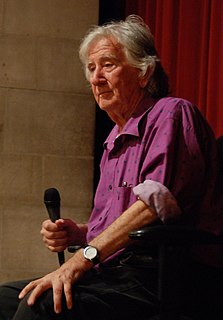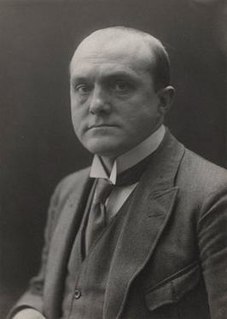Top 202 Spectators Quotes & Sayings - Page 4
Explore popular Spectators quotes.
Last updated on September 19, 2024.
We need a barn or one of those storage areas for the Broken vehicles." "A garage?" He gave her a short nod. "A private, relatively remote location, with thick walls to dampen the sound and preferably a sturdy door I could bolt from the inside, keeping your grandmother, your brothers, and all other painfully annoying spectators out..." Rose began to laugh. A make-out bunker... "I'm glad you find our dilemma hilarious.
Some critics of racing witlessly claim that spectators only attend to see someone die. This is utter and complete nonsense. I have been at numerous races where death is present. When a driver dies, the crowd symbolically dies, too. They come to see action at the brink: ultimate risk taking and the display of skill and bravery embodied in the sport's immortals like Nuvolari, Foyt, and thousands of others who operate at the ragged edge.
Perhaps you say, Why are the wicked joyous? Why do they live in luxury? Why do they not toil with me? It is because they who have not put down their names to strive for the crown are not bound to undergo the labors of the contest. They who have not gone down into the race-course do not annoint themselves with oil nor get covered with dust. For those whom glory awaits trouble is at hand. The perfumed spectators are wont to look on, not to join in the struggle, nor to endure the sun, the heat, the dust, and the showers.
It's very enigmatic because of course, the population [of North Korea] has no contact with the world outside or it's very, very limited. They don't have any telephone connections, no radio, no TV, no movies, no newspapers - nothing from the outside world. This is very strange and there's the very strict, unifying government that forces you to be in step. You see it in the stadium where the spectators create, by flipping cards, an image of the dear leader, or of the volcano, and it's made of a 100,000 human pictures.
Sportsmanship is the ethical and moral dimension of sports. It is demonstrated by a number of attributes and attitudes such as fair play, respect for the rules and traditions of the sport and various traits of good character including integrity (abiding by the letter and spirit of the rules and concepts of honor); demonstrated respect for others including teammates, opponents, officials and spectators; accountability, self-control, and graciousness in victory and defeat.
When does a session of The Theatre of the Oppressed end? Never - since the objective is not to close a cycle, to generate a catharsis, or to end a development. On the contrary, its objective is to encourage autonomous activity, to set a process in motion, to stimulate transformative creativity, to change spectators into protagonists. And it is precisely for these reasons that the Theatre of the Oppressed should be the initiator of changes the culmination of which is not the aesthetic phenomenon but real life.
And we, spectators always, everywhere, looking at, never out of, everything! It fills us. We arrange it. It collapses. We re-arrange it, and collapse ourselves. Who's turned us round like this, so that we always, do what we may, retain the attitude of someone who's departing? Just as he, on the last hill, that shows him all his valley for the last time, will turn and stop and linger, we live our lives, for ever taking leave.
In a world of fixed future, life is an infinite corridor of rooms, one room lit at each moment, the next room dark but prepared. We walk from room to room, look into the room that is lit, the present moment, then walk on. We do not know the rooms ahead, but we know we cannot change them. We are spectators of our lives.
A film like Genevieve to my contemporaries is not a film made years ago, but last week or last year. They see me as I was then, not as I am now. I am the reassurance that they have not changed. In an upside down world, with all the rules being rewritten as the game goes on and spectators invading the pitch, it is good to feel that some things and some people seem to stay just as they were.
Watching violence in movies or in TV programs stimulates the spectators to imitate what they see much more than if seen live or on TV news. In movies, violence is filmed with perfect illumination, spectacular scenery, and in slow motion, making it even romantic. However, in the news, the public has a much better perception of how horrible violence can be, and it is used with objectives that do not exist in the movies.
We do not belong to this material world that science constructs for us. We are not in it; we are outside. We are only spectators. The reason why we believe that we are in it, that we belong to the picture, is that our bodies are in the picture. Our bodies belong to it. Not only my own body, but those of my friends, also of my dog and cat and horse, and of all the other people and animals. And this is my only means of communicating with them.
It was as if that great rush of anger had washed me clean, emptied me of hope, and, gazing up at the dark sky spangled with its signs and stars, for the first time, the first, I laid my heart open to the benign indifference of the universe. To feel it so like myself, indeed, so brotherly, made me realize that I'd been happy, and that I was happy still. For all to be accomplished, for me to feel less lonely, all that remained to hope was that on the day of my execution there should be a huge crowd of spectators and that they should greet me with howls of execration.
I have wrestled with death. It is the most unexciting contest you can imagine. It takes place in an impalpable greyness, with nothing underfoot, with nothing around, without spectators, without clamour, without glory, without the great desire of victory, without the great fear of defeat, in a sickly atmostphere of tepid scepticism, without much belief in your own right, and still less in that of your adversary.
I always try to create equal power between the subject and the object, so as not to end up creating a relationship where the camera is here and the object out there. This is for me a very difficult and sensitive balance. When I produce a work, cut and frame images, I realize that spectators can identify with the images and almost forget that someone else actually made them. This would be the optimal situation. I don't know whether I succeed in doing so, but that's what I would like to have happen.
From the public's perspective, they like to see guys that go out there and stand. Now, if you happen to be one of those two athletes that are standing out there and trading with each other, afterwards you would disagree with those people. The spectators are not on the receiving end of all those strikes. I have young guys who say, "I like to stand and trade." I say, "Really? Then you are not a very intelligent fighter."
The artist has some internal experience that produces a poem, a painting, a piece of music. Spectators submit themselves to the work, which generates an inner experience for them. But historically it's a very new, not to mention vulgar, idea that the spectator's experience should be identical to, or even have anything to do with, the artist's. That idea comes from an over-industrialized society which has learned to distrust magic.
With cold eyes and indifferent mind the spectators regard the work. Connoissers admire the "skill" (as one admires a tightrope walker), enjoy the "quality of painting" (as one enjoys a pasty). But hungry souls go hungry away. The vulgar herd stroll through the rooms and pronounce the pictures "nice" or "splendid." Those who could speak have said nothing, those who could hear have heard nothing.
There is something about participating; it is almost my religion. If the world is still here in 100 years, people will know the importance of participating, not just being spectators. Millions of small groups around the world, that don't necessarily all agree with one another, are made up of people who are not just sitting back waiting for someone to do things for them. No one can prove anything, but of course if I didn't believe it had some kind of power, I wouldn't be trying to do it.
Society ... is nothing more than the war of a thousand petty opposed interests, an eternal strife of all the vanities, which, turn in turn wounded and humiliated one by the other, intercross, come into collision, and on the morrow expiate the triumph of the eve in the bitterness of defeat. To live alone, to remain unjostled in this miserable struggle, where for a moment one draws the eyes of the spectators, to be crushed a moment later -- this is what is called being a nonentity, having no existence. Poor humanity!
The world is rather shot to pieces [end of World War II - 1945], but the spectators climb out of their caves and pretend to have again become normal and customary humans who ask each other's pardon instead of eating one another or sucking each other's blood. The entertaining folly of war evaporates, distinguished boredom sits down again on the dignified old overstuffed chairs.. .May I report about myself that I have had a truly grotesque time, brim-full with work, Nazi persecutions, bombs, hunger, and again and again work - in spite of everything [a. o. using his bed sheets as canvas for the new paintings].
The press box at Wrigley Field in Chicago is an extended narrow shed, two rows deep, that is precariously bolted to the iron rafters just underneath the park's second deck. To gain access, one must climb a steeply angled ramp and clamber down a little starboard companionway, guarded at its foot by a uniformed minion and then proceed giddily along a catwalk that hangs directly above the tiered, circling rows of seats and spectators behind home plate.
... It's perfect! Locke would appreciate it." "Bug," Calo said, "Locke is our brother and our love for him knows no bounds. But the four most fatal words in the Therin language are 'Locke would appreciate it.'" "Rivalled only by 'Locke taught me a new trick,'" added Galo. "The only person who gets away with Locke Lamora games ..." "... is Locke ..." "... because we think the gods are saving him up for a really big death. Something with knives and hot irons ..." "... and fifty thousand cheering spectators.





















